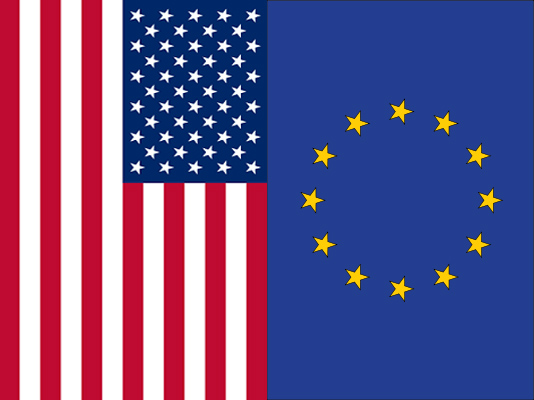 The report of the US-EU High Level Working Group on Jobs and Growth has released its final report that recommends the negotiation of a trade agreement between the two. The report specifically recommends “a comprehensive agreement that addresses a broad range of bilateral trade and investment issues, including regulatory issues, and contributes to the development of global rules.” The Working Group has seemed hesitant to call for IP negotiations as part of the agreement, but others have signaled that they want the agreement to include new IP protections.
The report of the US-EU High Level Working Group on Jobs and Growth has released its final report that recommends the negotiation of a trade agreement between the two. The report specifically recommends “a comprehensive agreement that addresses a broad range of bilateral trade and investment issues, including regulatory issues, and contributes to the development of global rules.” The Working Group has seemed hesitant to call for IP negotiations as part of the agreement, but others have signaled that they want the agreement to include new IP protections.
In its interim report, the Working Group had highlighted IPRs as an area that might need to be left out of the agreement, suggesting that “it would not be feasible in negotiations to seek to reconcile across the board differences in the IPR obligations that each typically includes in its comprehensive trade agreements.” However, the Working Group received comments urging the inclusion of IPR from groups such as the national Association of Manufacturers and the Pharmaceutical Research and Manufacturers Association.
The final report released this week recommends inclusion of an IPR chapter, though in a “limited” way:
Intellectual Property Rights (IPR)
Both the EU and the United States are committed to maintaining and promoting a high level of intellectual property protection, including enforcement, and to cooperating extensively. The two sides will sustain and enhance their work on IPR issues. The HLWG recommends that both sides explore opportunities to address a limited number of significant IPR issues of interest to either side, without prejudice to the outcome.
U.S. lawmakers, however, would like to see stronger IPR protections in the final agreement. A letter from the Senate Finance Committee Chairman Max Baucus and Ranking Minority Member Orin Hatch has asked that the terms of the deal include strong intellectual property measures, as well as other polcies favorable to firms that rely on IP protection:
Congressional support will also require strong intellectual property protection… In addition, the agreement must meaningfully address EU measures that undermine the value of intellectual property protection, including with respect to pricing and reimbursement and regulatory transparency.
If the two sides come closer to harmonizing their IPR regimes, it would likely affect IP around the world. Officials are predicting that – similar to the TPP – the size of the trade agreement would cause it to have an impact on international standards and rules. A joint statement from U.S. President Barack Obama, European Council President Herman Van Rompuy and EC President José Manuel Barroso would “contribute to the development of global rules” of the global trading system. Barroso is also quoted in the Wall Street Journal saying “since this is going to be the biffest free trade agreement ever done, it will certainly have an impact on global standards.”




